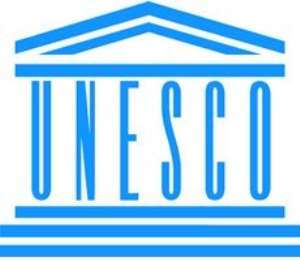
Developing countries must overhaul their educational system to address the peculiar challenges they face, the United Nations Educational, Scientific and Cultural Organization’s (UNESCO) Global Education Monitoring (GEM) report has said.
“Education systems need to ensure they are giving people vital skills and knowledge that can support the transition to greener industries, and find new solutions for environmental problems. This also requires education to continue beyond the school walls, in communities and the workplace throughout adulthood.
If we want a greener planet, and sustainable futures for all, we must ask more from our education systems than just a transfer of knowledge. We need our schools, universities and lifelong learning programmes to focus on economic, environmental and social perspectives that help nurture empowered, critical, mindful and competent citizens,” the report said.
The report quoted the UNESCO Director-General, Irina Bokova as saying: “A fundamental change is needed in the way we think about education’s role in global development, because it has a catalytic impact on the well-being of individuals and the future of our planet.
Now, more than ever, education has a responsibility to be in gear with 21st century challenges and aspirations, and foster the right types of values and skills that will lead to sustainable and inclusive growth, and peaceful living together.”
The annual report by the UN agency revealed that on current trends, by 2020, there will be 40 million too few workers with tertiary education relative to demand.
The report said achieving universal upper secondary education by 2030 in low income countries would lift 60 million out of poverty by 2050.
Meanwhile governments across developing countries are making efforts to achieve the target of getting more students to tertiary level and it is estimated that 25,000 scholarships were offered in 2015 by government programmes to students from developing countries.
The UN Sustainable Development Goal 4, Target 4.b states that “by 2020, substantially expand globally the number of scholarships available to developing countries, in particular least developed countries, small island developing States and African countries, for enrolment in higher education, including vocational training and information and communications technology, technical, engineering and scientific programmes, in developed countries and other developing countries.”
In at least 35 countries, governments spent less than 4 percent of GDP and less than 15% of their total expenditure on education.
With a global average of about 5 percent, Ghana spends over 6percent of GDP on education. Ghana has one of the highest expenditures on education as a proportion of GDP compared to other countries.
The report recommended that Aid needs to increase at least six fold to fill the US$39billion annual education finance gap, but in 2014, levels were 8% lower than at their peak in 2010.




 Burkina Faso expels French diplomats for 'subversive activities'
Burkina Faso expels French diplomats for 'subversive activities'
 GOIL reduces petrol price by 29 pesewas, sells GHC14.70 per litre
GOIL reduces petrol price by 29 pesewas, sells GHC14.70 per litre
 The disrespect towards security is terrible; we can do better — Atik Mohammed co...
The disrespect towards security is terrible; we can do better — Atik Mohammed co...
 Starlink to cease connection in Ghana, other “unavailable” countries on April 30...
Starlink to cease connection in Ghana, other “unavailable” countries on April 30...
 MMCEs, DCEs and Regional Ministers must be elected to reduce political interfere...
MMCEs, DCEs and Regional Ministers must be elected to reduce political interfere...
 National Cathedral: ‘Nonsense; you take taxes from broke Ghanaians to dig a clum...
National Cathedral: ‘Nonsense; you take taxes from broke Ghanaians to dig a clum...
 April 18: Cedi sells at GHS13.59 to $1, GHS13.01 on BoG interbank
April 18: Cedi sells at GHS13.59 to $1, GHS13.01 on BoG interbank
 We must harness the collective power and ingenuity of female leaders to propel o...
We must harness the collective power and ingenuity of female leaders to propel o...
 Saglemi Housing Project will not be left to rot – Kojo Oppong Nkrumah
Saglemi Housing Project will not be left to rot – Kojo Oppong Nkrumah
 Asantehene commends Matthew Opoku Prempeh for conceiving GENSER Kumasi Pipeline ...
Asantehene commends Matthew Opoku Prempeh for conceiving GENSER Kumasi Pipeline ...
